Share on social media
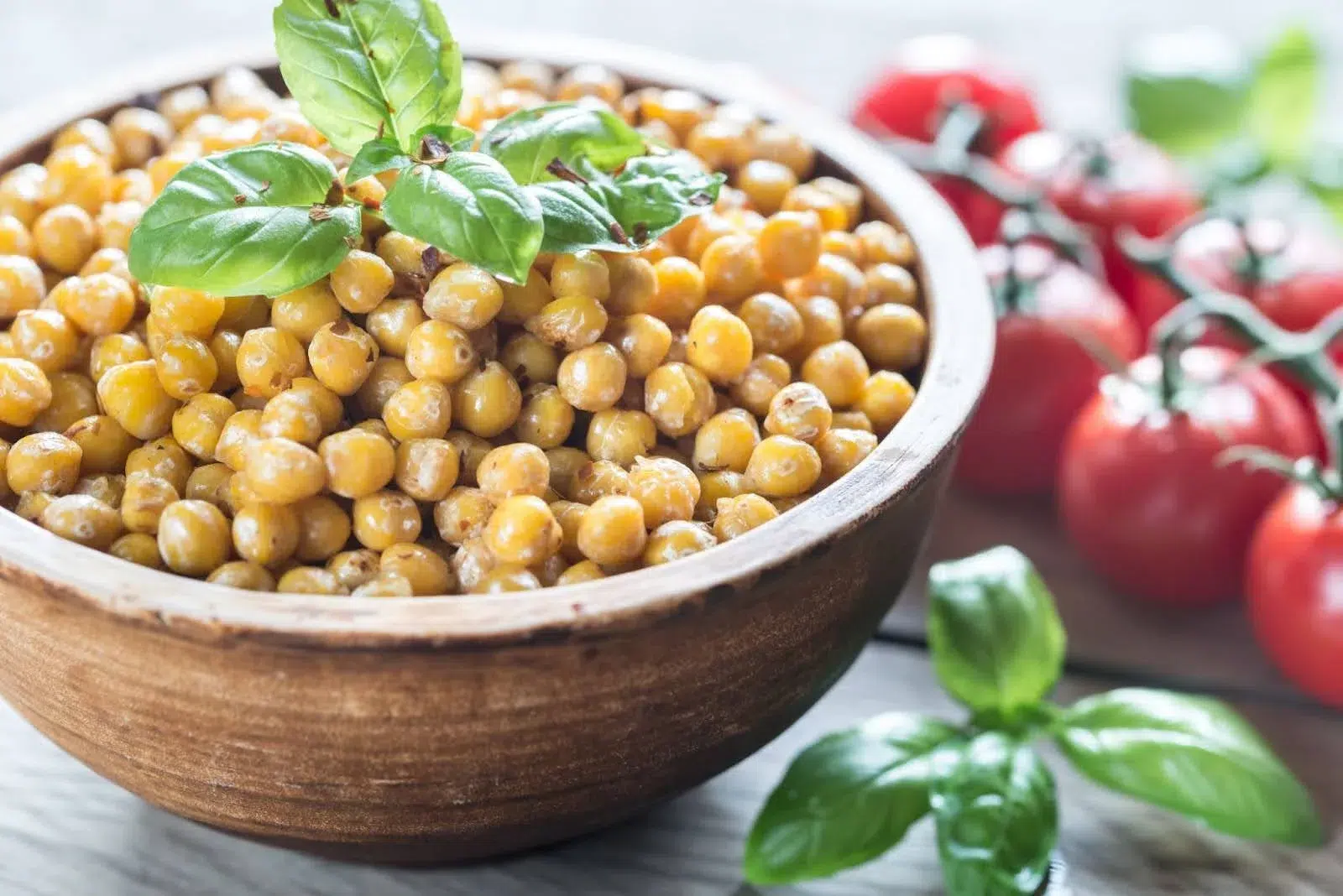
Mediterranean cuisine is a cultural treasure, a tapestry of ancient traditions, vibrant flavors, and time-tested recipes. The chickpea is at the heart of this culinary heritage, a humble ingredient that weaves its narrative throughout the region’s dishes. More than just a food item, the chickpea is a cultural symbol, connecting us to the rich history and traditions of the Mediterranean cuisine.
Amidst the symphony of dishes and traditions in Mediterranean culture, chickpea-based recipes shine, offering a unique blend of flavor and health benefits. From the iconic hummus to the crispy falafel, from the hearty stews to the refreshing salads, the humble chickpea takes center stage, adding its distinct flavor and texture to various dishes. The possibilities are limitless, and Aladdin’s menu in Houston is a testament to this, featuring a diverse range of chickpea-based dishes that inspire culinary exploration.
Chickpeas, also known as garbanzo beans, are not just a staple in Mediterranean cuisine but a nutritional powerhouse. Packed with protein, fiber, vitamins, and minerals, they form a crucial part of a balanced diet. Let’s explore their health benefits in a way that resonates with our daily lives:
Chickpeas offer an impressive 14.5 grams of protein per cup. In a world where plant-based diets are gaining popularity, chickpeas are a primary protein source, especially for vegetarians and vegans. When combined with whole grains like brown rice or whole wheat bread, chickpeas also provide all the essential amino acids, making it a complete protein source. This is especially important for those not consuming animal products, as it ensures they get all the necessary nutrients for growth and muscle repair.
The high fiber content in chickpeas promotes a healthy digestive tract. It helps move food through the digestive system, preventing constipation and promoting regular bowel movements. These small balls of wonder also help with blood sugar control. The soluble fiber in chickpeas plays a significant role in controlling blood sugar by slowing the absorption of sugar into the bloodstream. This makes chickpeas particularly beneficial for those with diabetes or those at risk. Fiber also keeps you feeling full longer, which can help you maintain a healthy weight.
Chickpeas are a rich source of vitamins and minerals like:
Chickpeas are rich in soluble fiber, which helps lower “bad” LDL cholesterol, thus reducing the risk of heart disease. They are also rich in antioxidants like quercetin, kaempferol, and myricetin, which protect against cellular damage and inflammation, further boosting heart health. Unlike many animal-based protein sources, chickpeas contain minimal saturated fats, making them a heart-healthy alternative. Eating chickpeas regularly can contribute to better overall heart health and lower the risk of cardiovascular diseases.
Understanding the depth of nutrition that chickpeas offer makes it clear why they are a staple in the Mediterranean diet and beloved by health enthusiasts around the globe.
Chickpeas, with their nutty flavor and grainy texture, has been a beloved component of Mediterranean cuisine for centuries. They have anchored various dishes, from the iconic hummus to the hearty stews. Let’s take a culinary voyage and discover how these golden, round beans have shaped the Mediterranean food culture.
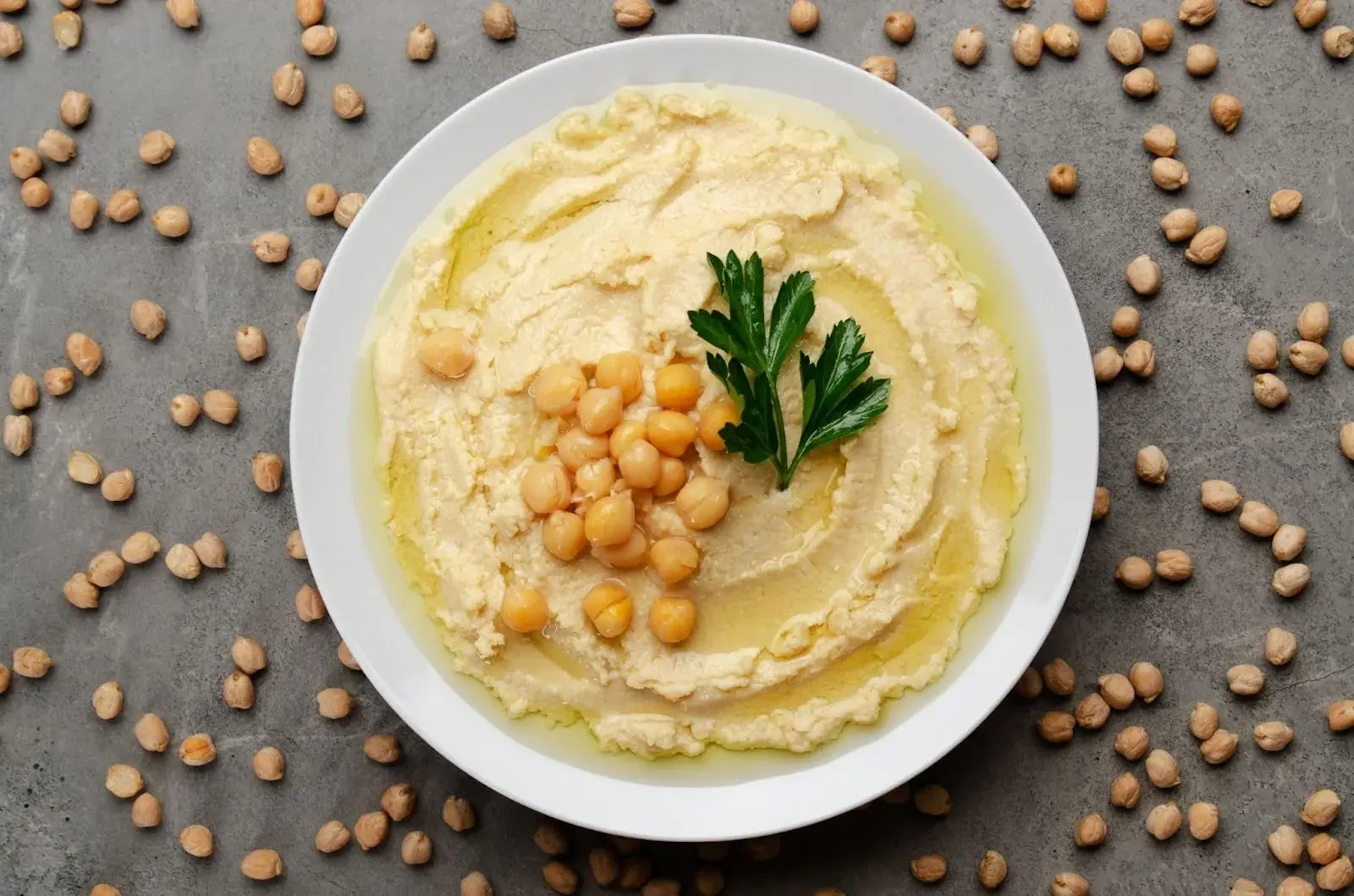
The word ‘hummus’ originates from the Arabic term for chickpeas. While people debate its origin—from ancient Egypt to the Levant—hummus has become synonymous with Mediterranean and Middle Eastern cuisine. Today, grocery stores globally offer hummus, but local Mediterranean eateries often provide the most authentic flavors.
Traditional hummus is an artful blend of chickpeas, tahini, lemon juice, and garlic. However, numerous variations have sprung up, including roasted red peppers, olives, and beets. Hummus is not only delicious but also packed with nutrients, making it an excellent dip for veggies or spread for sandwiches.
Read also: What is Hummus? A Deep Dive into This Mediterranean Delight
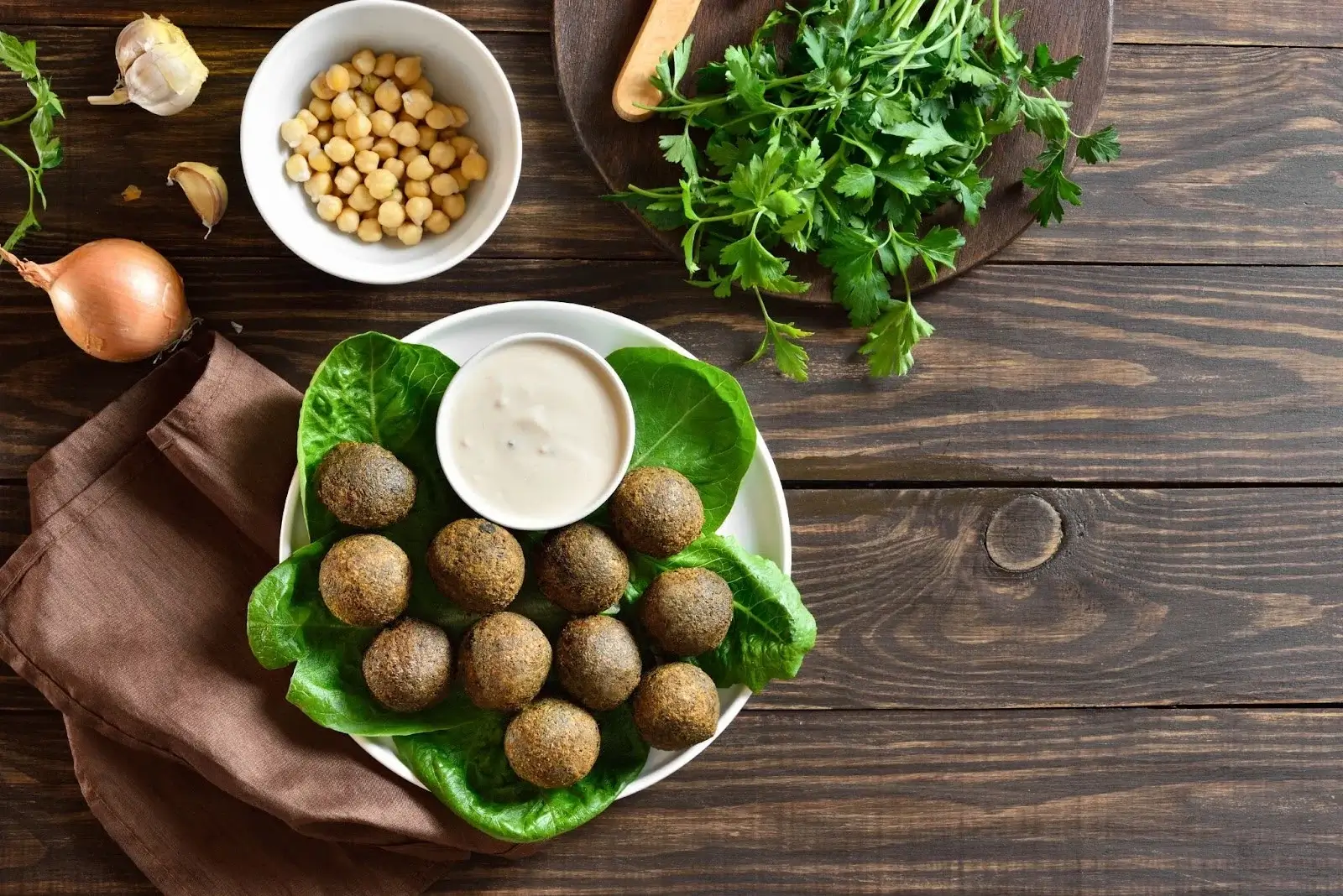
Falafel is a deep-fried ball or patty made from ground chickpeas, herbs, and spices, has become the vegetarian answer to meatballs. Often stuffed in pita bread with salad and tahini sauce, it’s a portable meal that’s both delicious and satisfying. The crispy exterior and flavorful interior make falafel a favorite among many.
While falafel is rooted in the Middle East, its appeal has gone global. It’s common to find falafel burgers in Western countries and even falafel sushi rolls in some innovative fusion restaurants! These creative adaptations show the versatility of falafel and how it can be enjoyed in various forms.
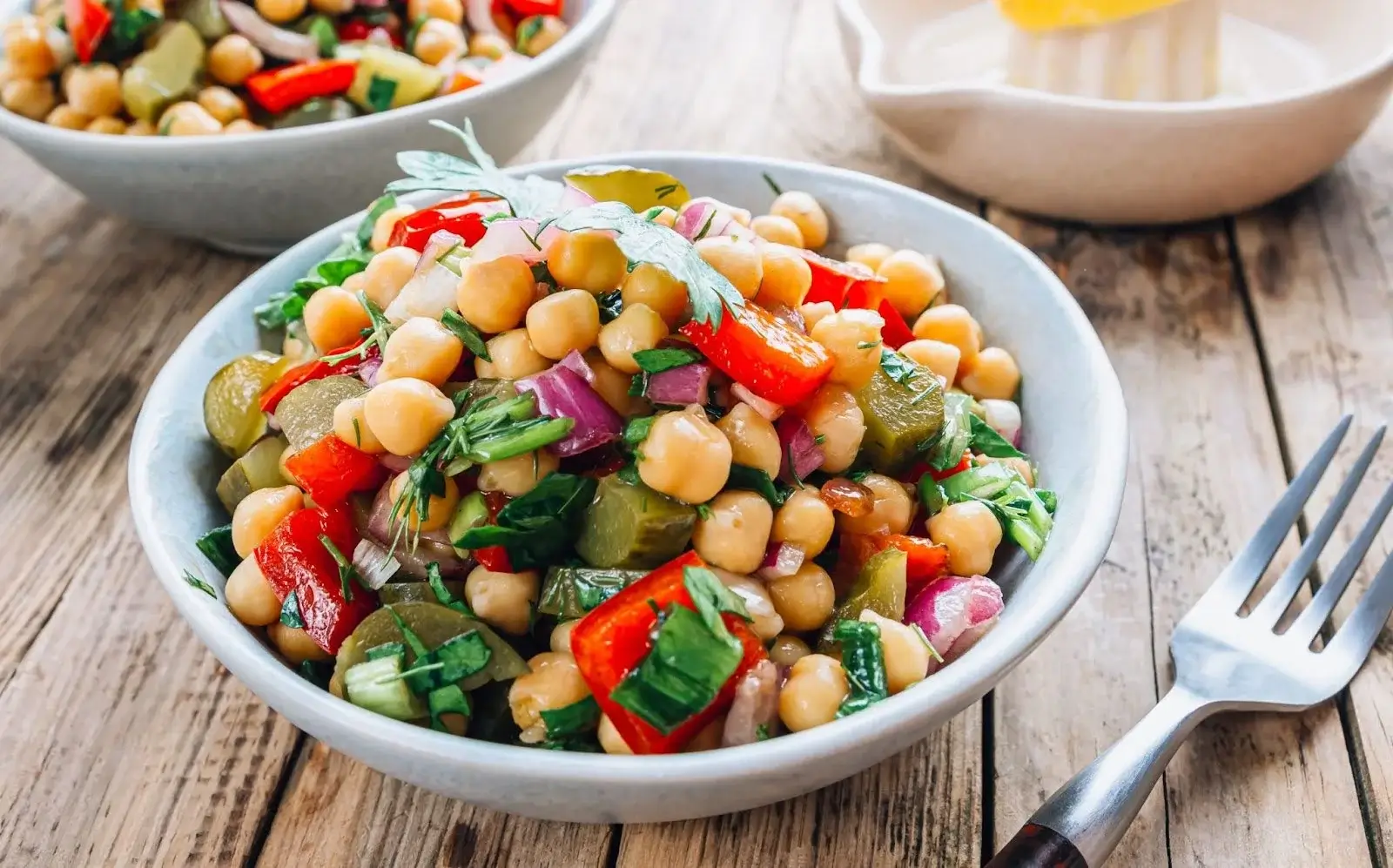
Chickpeas are often the star in salads, tossed with cucumbers, tomatoes, feta cheese, and olives and drizzled with olive oil and lemon juice. They add a satisfying bite and protein boost to these fresh dishes, making them perfect for a light lunch or as a side dish.
In many Mediterranean regions, people simmer chickpeas in stews with tomatoes, onions, garlic, and bell peppers. They often season these stews with aromatic spices like cumin and coriander and serve them with crusty bread. The hearty nature of chickpea stews makes them perfect for colder months or as a comforting meal any time of the year.
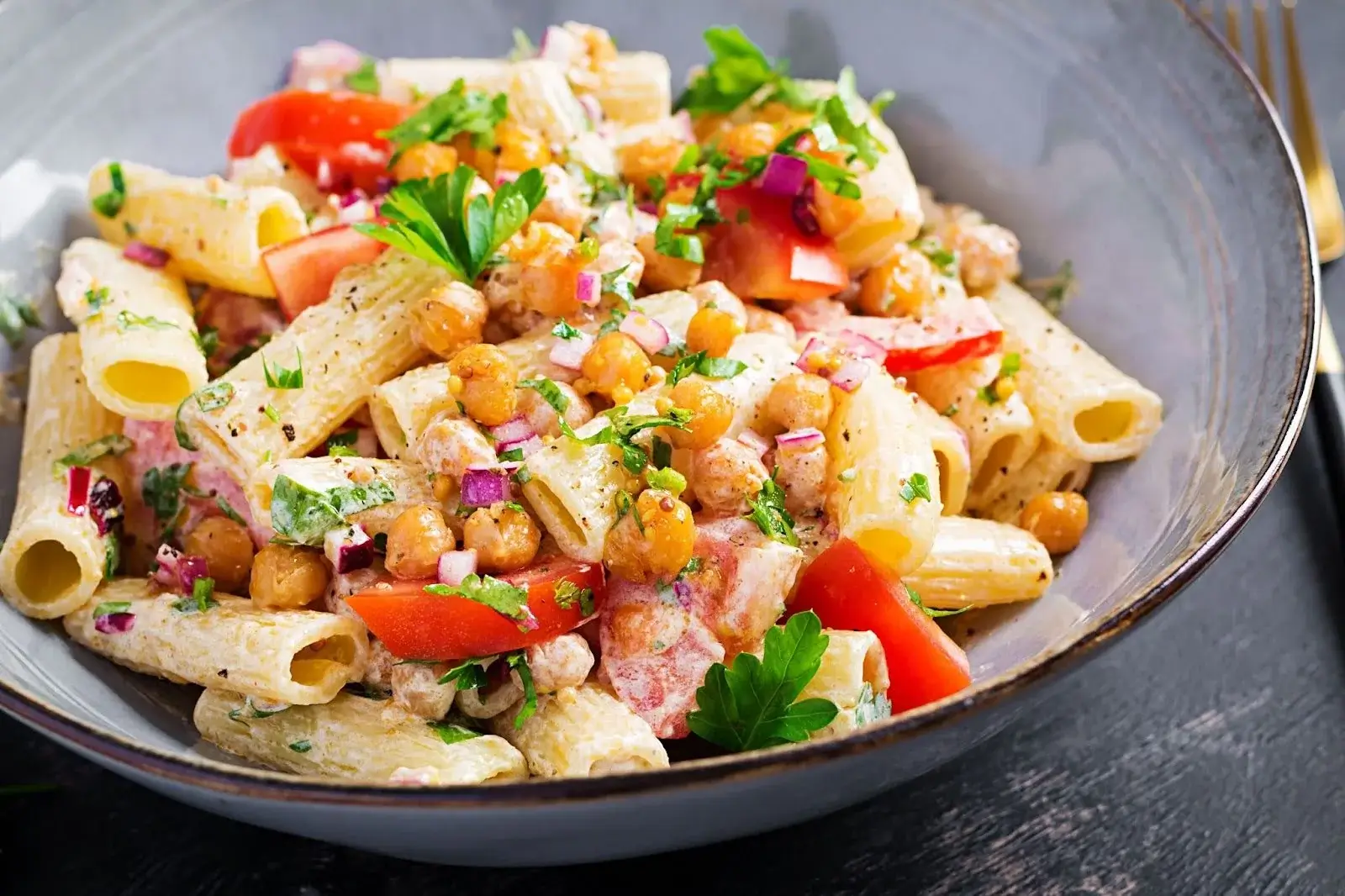
The Sardinian Fregola is a pasta from Sardinia, often cooked with chickpeas in a rich tomato sauce. In some Mediterranean kitchens, cooks generously stud rice pilafs with chickpeas, providing an extra layer of flavor and nutrition. These dishes highlight how people can integrate chickpeas into various types of meals, from pasta to rice dishes.
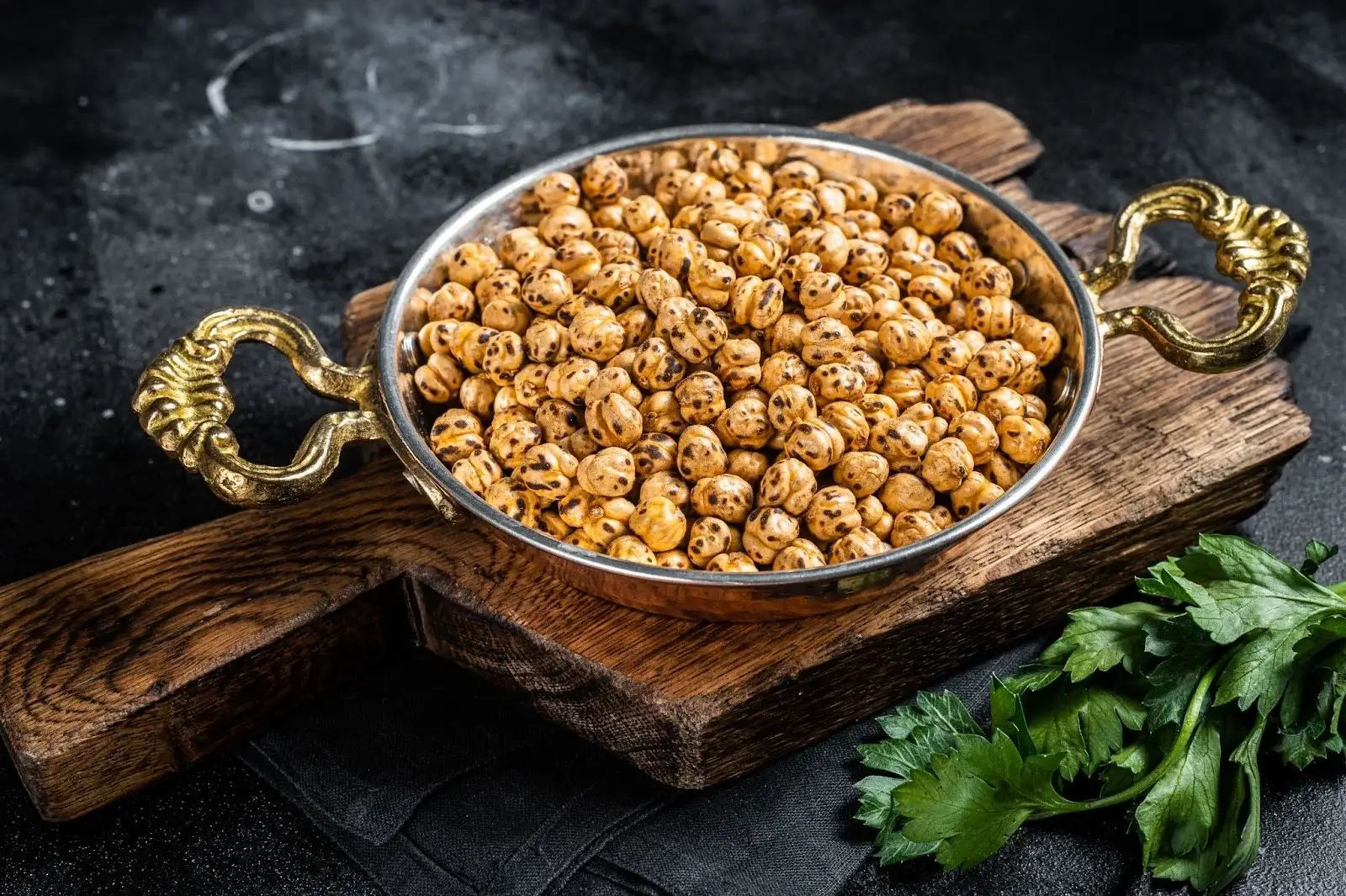
Roasted until crispy and seasoned with herbs like rosemary or spices like smoked paprika, roasted chickpeas have become a popular, healthy snack alternative to chips. They are crunchy, flavorful, and packed with nutrients, making them a perfect snack for any time of the day. You can easily make roasted chickpeas at home by tossing them with your favorite seasonings and baking them until crispy.
Who says chickpea-based dishes can only be savory? Surprisingly, you can whip up the liquid from canned chickpeas, known as aquafaba, like egg whites. Bakers use it as a vegan alternative to create meringues and other light, airy desserts. In parts of the Mediterranean, cooks use chickpea flour to make sweet treats, showcasing the legume’s surprising versatility. These innovative uses of chickpeas demonstrate their flexibility in savory and sweet dishes.
When offering the best lunch in Houston, Aladdin doesn’t just rely on its magical ambiance and excellent service. It relies heavily on fresh ingredients like chickpeas to conjure delicious and nutritious dishes.
Our chickpea salad, for instance, is a beautiful medley of chickpeas, fresh herbs, and zesty dressing, reflecting the true essence of Mediterranean food. The chickpea soup, slow-cooked to perfection with aromatic spices, is a comforting treat on a fantastic day. These dishes highlight how chickpeas can be used in various ways to create flavorful and nutritious meals.
The Mediterranean diet, characterized by its emphasis on vegetables, grains, and legumes, has been celebrated for its numerous health benefits. It reduces the risk of chronic diseases, promotes heart health, and has even been linked to longevity. Central to this diet is the chickpea. Its versatility means it can be included in meals from breakfast to dinner, and its health benefits make it a preferred choice for those keen on eating healthily.
Chickpeas are more than just an ingredient. They are a testament to the magic of the Mediterranean diet. So hop over to Aladdin to taste the magic of one of the most essential Mediterranean ingredients. Not only will you be treated to some of the best lunches in Houston, but you’ll also be partaking in the rich culinary history of the Mediterranean, with chickpeas at its heart.
Q1: What are the health benefits of chickpeas?
A1: Chickpeas are rich in protein, fiber, vitamins, and minerals, promoting digestive health, heart health, and blood sugar control.
Q2: How can I incorporate chickpeas into my diet?
A2: Chickpeas can be added to salads, stews, and pasta dishes or enjoyed as hummus and falafel. They can also be roasted for a healthy snack or used in desserts like aquafaba meringues.
Q3: Are chickpeas good for heart health?
A3: Yes, chickpeas are high in soluble fiber, which helps lower LDL cholesterol, and contains antioxidants that reduce inflammation and protect against heart disease.
Q4: Can chickpeas be part of a weight loss diet?
A4: Absolutely. Their high fiber and protein content can help you feel full longer, aiding in weight management.
Q5: Are chickpeas suitable for people with diabetes?
A5: Yes, chickpeas have a low glycemic index, and their fiber content helps regulate blood sugar levels, which benefits those with diabetes.
By understanding the nutritional power and exploring the various uses of chickpeas in Mediterranean cuisine, you can appreciate why they are such an essential part of this diet. Whether you’re enjoying them in a salad, stew, or as a snack, chickpeas offer a delicious and healthy option for any meal. So, next time you’re at Aladdin, don’t miss the chance to savor the magic of chickpeas!
You might like it